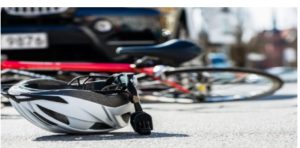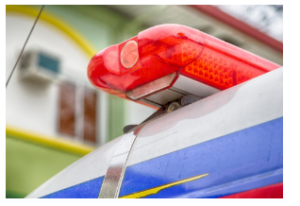Accidents don’t choose anyone, as they can happen to anyone, anytime, anywhere. This is especially true when you’re on the road, as various elements interact with each other all the time. When you consider how often car accidents can happen, sometimes the tendency is to focus on how to avoid them and how to deal with them. However, bike accidents also occur on the road, and it’s just as important to know how to cover yourself legally when you’ve been in a bike accident.
Understanding how these legal elements interact with one another in terms of a bike accident is relevant, especially if you’re in an area with a lot of bikes. Furthermore, it’s important that you get the input of a legal professional especially when it comes to traffic laws so you can at least take the right approach if you’ve been involved in a bike accident.
According to Nolo, one of the most important things to consider after a bike accident is to make sure you are able to get proper medical attention, regardless of the severity (or lack thereof) of your injuries. This, alongside properly documenting your injuries and evidence, can greatly help should you need to get yourself covered when it comes to insurance. Interestingly, there are insurance coverages that do exist for bike accidents, and here’s what to do to cover yourself legally when you’ve been in a bike accident.
The Police Report: Get The Evidence Right
If you’re ever involved in a bike accident, it’s important to call the authorities to the scene. Should you call 911, try to make sure a police officer arrives at the scene alongside the medical personnel in order to make sure the injured are treated, and the officer is there to take any notes. Make sure the police officer is able to make a report, as this can be a reference for insurance claims and injury lawsuits you may file.
- Try to make sure that the police at the scene do make a report about the accident. This provides you with the assurance that at least a legal piece of evidence exists that an accident did happen, and could help provide another perspective about your experience.
- Remember, however, that if you find yourself injured, you should seek medical assistance immediately. There are legal avenues to help you receive compensation when proven, such as certain institutions like this offering services for filing cases should you have injuries involving broken hip bones.
Get Good Evidence: What To Find
When you’ve heard the advice to “document everything” when it comes to accidents, the execution of such advice isn’t always the easiest thing to do. There are however some recommended approaches for you to ensure that the information you’re getting is appropriate for your situation. For instance:
- Try to get a copy of the police report not only with your statement and the statement of the other party, but also of other witnesses.
- Try to write down everything that’s happened to the best of your knowledge. Afterwards, try to take photos of what happened in the accident and try to make a diagram of what happened, if possible.
- Try to take photos of your injuries and get a copy of all medical bills that were given after you were treated.
- If you can get pictures and measurements of skid marks, that would be great. This determines just where along the road the particular vehicle used their brakes.
- Try to get pictures of your bicycle and your clothing, as well as information including receipts on just how much it would cost to replace these.
Fix Your Description: Be Careful What You Say
When you do get interviewed by the police about your report, or if you interact with anyone on the scene such as witnesses or the driver of another vehicle, try to be careful not to say anything that could make them interpret that the accident was your fault. This is because your statements may be misconstrued and interpreted as though you’re at fault for the crash and not them.
- Try to ask for a copy of the police report, or request a copy from the police department. Review through the information and cross check with the evidence you’ve gathered. Also, make sure the details described were correct. If not, communicate with the police department and request that an addendum be added into the report.
- Try to ask your legal counsel to make sure you know exactly just what you’re allowed to say and how to say it. They may give you advice to the kind of people you should interact with, and the extent through which you could share details of the incident.
Conclusion
Bike accidents, regardless if this is with a motorcycle or an actual bicycle, are hassling for everyone involved. Not only are you looking at potential injuries, but also damages to the bike, to property, and even other pedestrians. The occurrence of multiple factors may be the reason why bike accidents have legal repercussions, and this is why it’s important to know how to cover yourself legally when you’ve been in a bike accident. Understanding how these elements work can hopefully give you valuable insight on how to tackle these events should they happen to you.
——————————————————————————————————————
Disclaimer: Please remember that the purpose of this article is not to provide actual legal advice. It’s advised you speak with a lawyer or a legal counsel in order to learn more about bike accidents and what you should do if you ever find yourself in one.
Irene Wall has been writing about law for more than a decade. She writes pieces on various law topics that she hopes could help the common reader with their concerns. She enjoys playing basketball with her sons during her free time




